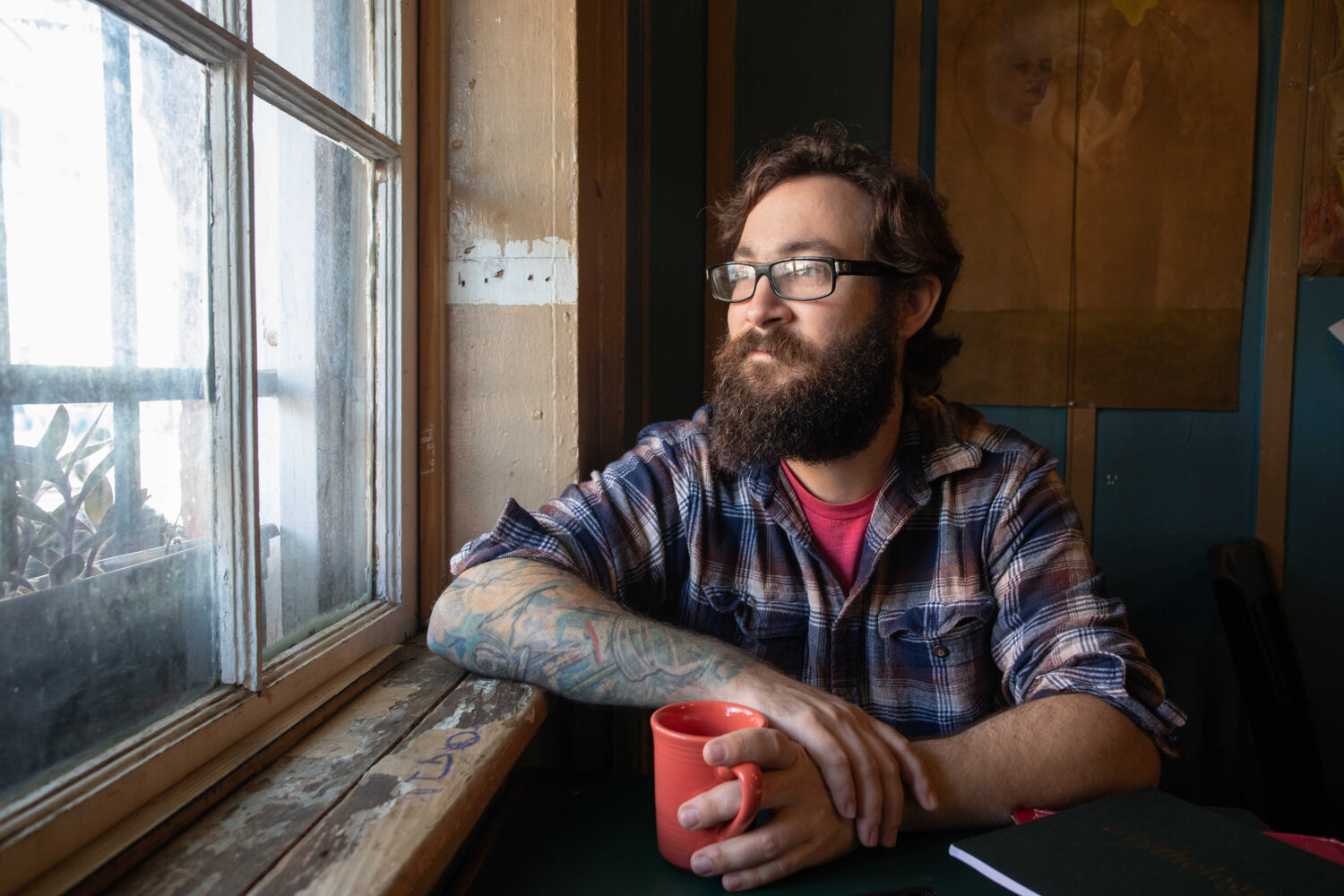
Baton Rouge’s new poet laureate will write in two languages, and one of them is endangered
Celebrating the intersection of writing and visual art and preserving a lost Louisiana language are at the core of what Jonathan Mayers hopes to accomplish as the Capital City’s newest poet laureate.
Mayers, a painter, poet and cultural activist, was named the 2021-2022 poet laureate last week by Mayor Sharon Weston Broome. The Baton Rouge Poet Laureate Program was launched in 2019 by the Mayor’s Office in partnership with the Arts Council of Greater Baton Rouge. Its appointees serve for one year, during which they work to deepen cultural awareness through poetry. Mayers is the city’s third poet laureate, following Brittany Marshall (2020-2021) and Cubs the Poet (2019-2020).
A Baton Rouge native, Mayers is quick to say he’s “not a scholarly poet.” Rather, his love for verse was forged through song lyrics and the poetry readings he participated in during college at the Spanish Moon bar. As an LSU undergraduate, Mayers felt the tug of becoming a creative, changing his major from computer science to painting and drawing, and graduating with a bachelor of fine arts degree. He later earned a master of fine arts degree from the University of New Orleans. Mayers’ bright, fantastical paintings merge his love for Louisiana landscapes with native creatures painted in a style reminiscent of cartoons and comics.
|
|

While fine art has defined much of what Mayers has done over the last several years, he’s also been driven by a passion for multilingualism and the way it can unlock culture. Four years ago, he pursued learning the French language through an immersion program at the Université Sainte-Anne in Church Point, Nova Scotia. Since then, he has also mastered the endangered Louisiana Creole language, Kouri-Vini, and actively works with a handful of other activists and scholars to preserve it. Kouri-Vini is fused from the languages spoken in Louisiana’s colonial period, including French. Particular features and words in the language have been traced to a handful of West African languages. Kouri-Vini, also called Louisiana Creole, is distinct from Louisiana, or Cajun, French. It continued to evolve throughout the state’s history, but has faded as the generations of people who spoke it have died out.
“My grandmother and great-grandmother spoke Kouri-Vini,” Mayers says. “A lot of people still have traces of it in their family, even though they might not recognize it as part of an endangered language.”
Mayers’ enthusiasm for Kouri-Vini, and for multilingualism in general, is apparent in his daily life. His outgoing voicemail message is in Kouri-Vini. His website tabs are in Kouri-Vini and English. Without pretension, he pronounces words like “Baton Rouge,” “Creole” and “Istrouma” with an accent, the result of spending at least part of every day speaking Kouri-Vini, he says.
That makes him a rarity.
“Less than 9,000 people still speak Kouri-Vini today,” Mayers says, “including people who are learning it.”
Mayers says his main objective as poet laureate is to promote and celebrate Baton Rouge’s Creole heritage, the cultural melding that occurred when different groups, including African enslaved people, exiled Acadians and European colonizers first coexisted during the colonial period. Preserving the languages that took shape during this period will help us better understand our collective culture, he says.
“I would like to find others who speak Kouri-Vini,” Mayers says. “It’ll be a big part of what I do as poet laureate.”
|
|
|

